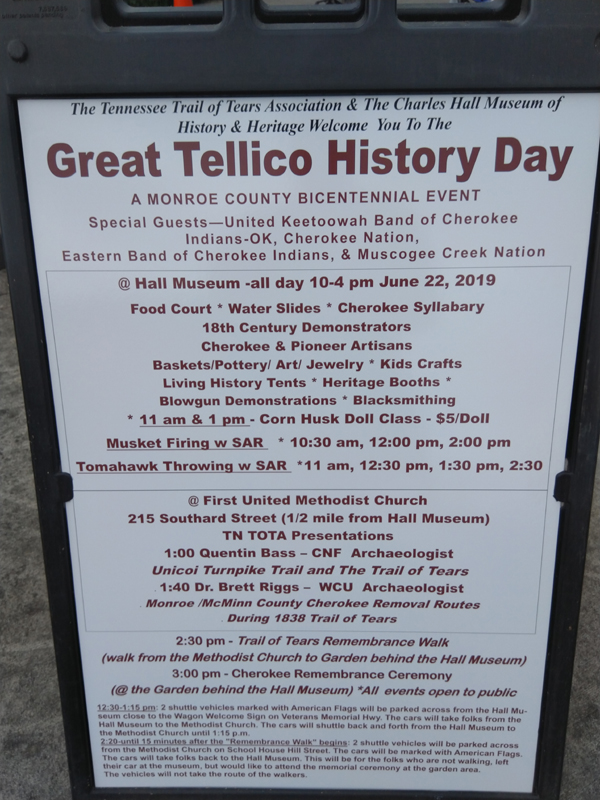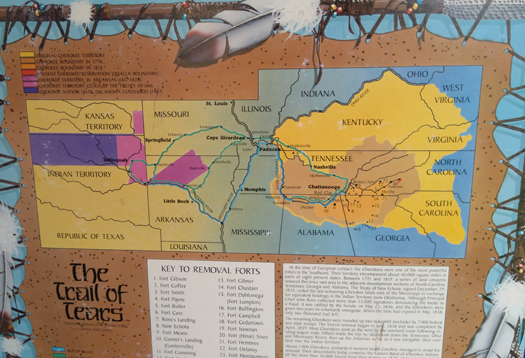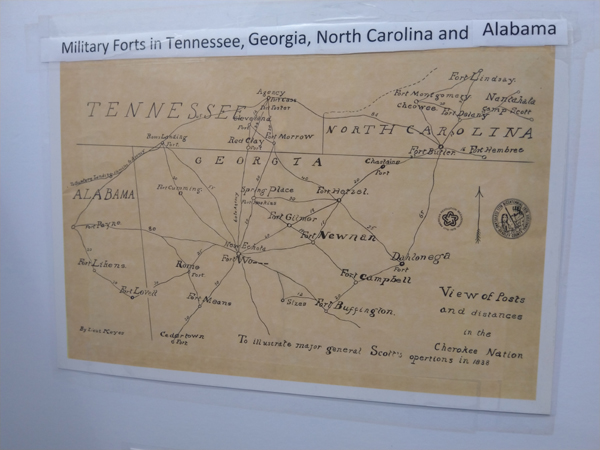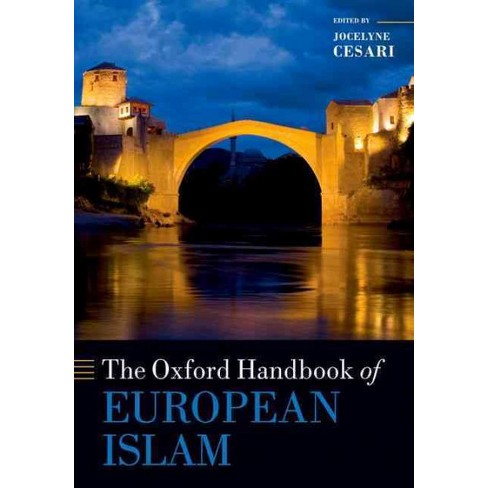PENTECOSTAL BABEL
PENTECOSTAL BABEL
As we reflect upon Pentecost Sunday, I submit here my recently published article in the preaching journal of Columbia Theological Seminary. I was pleased that this piece was made the lead article in the Pentecost edition of the Journal for Preachers (just ahead of Walter Brueggemann’s contribution, which made me feel pretty good!). The article is also a smattering of one of the chapters of my upcoming theological memoir, which is presently being copy-edited by Cascade Books. I welcome your comments and criticisms!
“NOW, DO NOT GO FROM THIS MEETING AND TALK ABOUT TONGUES, BUT TRY TO GET PEOPLE SAVED!”
WILLIAM SEYMOUR, THE AZUSA STREET MISSION
One of the reasons that I voraciously enjoy the Journal for Preachers is that I am a Pentecostal. I find myself terrifically motivated by the perspectives of this community of mainline Protestant preachers, who seem to so effortlessly move exegetical and theological dirt around the jobsite to uncover treasures I would never otherwise discover. In this collegial spirit, I thought our readers might enjoy a Pentecostal perspective on the Day of Pentecost, particularly the phenomenon that pushes the entire story off the ground: the gift of tongues. In circles where the emphasis of Acts 2 is typically placed on the birthday of the Church, perhaps moving the dirt around the tongue talking, the early morning racket, and the accusations of drunkenness will reveal some hidden gems.
The Sign of Tongues in the Pentecostal Tradition
It is safe to say that the average man on the street, if he has heard of a Pentecostal, associates us with one of our odder habits: what is typically called “speaking in tongues.” We take this phrase from the King James translation of the book of Acts in the New Testament, a translation that was hammered out during Shakespearean times. You might also call the habit, more contemporarily, “speaking in languages.”
Speaking in tongues is what Pentecostals became known for early on, especially at the Azusa Street Revival at the beginning of the twentieth century. Its leader, William Seymour, tried his best to focus people’s attention not toward the phenomenon of tongues, but toward the lifestyle such Spirit-empowerment produced. “If you get angry, or speak evil or backbite, I care not how many tongues you may have, you have not the baptism with the Holy Spirit,” the illiterate Seymour preached.[i] Still, it is hard not to focus on a group of people who spontaneously burst into shouting a bunch of syllables that sound like gibberish.
“We believe in speaking with other tongues as the Spirit gives utterance,” my denomination’s faith statement reads, “and that it is the initial evidence of the baptism in the Holy Ghost.” As if speaking in tongues were not aberrant enough, this statement seriously upped the ante. If you don’t speak in tongues, you haven’t really had a full experience of the Holy Spirit, we declared. The gift of tongues is the entrance requirement into Spirit baptism and the complete Christian life. If you don’t do it, according to our particular tradition, you’re not a bona fide Pentecostal.
Our motives in this effort to encourage the gift of tongues have always been pure, but slapping a bunch of strictures around the activity of the Holy Spirit is tricky business at best, like trying to tame the wind. At worst, we can dress up to play the part of God. Certainly God “does not change like the shifting shadows,” James 1:17 says, but neither is God beholden to formulas. In erring to the latter side, I have seen and heard all kinds of personal stories about well-meaning Pentecostals trying to “help” others receive the gift of tongues, and the stories range from the horrific to the hokey.
Growing up, there were plenty of altar calls to receive the Holy Spirit by way of the “sign” of speaking in tongues (signage is the language for the gift used in Mark 16:17). People often testified of “seeking” the gift for many months (One new convert of our congregation who was in seeking mode remarked, “The Holy Ghost sure is an elusive thing, ain’t He?”). Seekers would crowd the altar, and holy huddles would form around them, swaying back and forth, everyone praying out loud, eight, ten, twelve hands on the seeker’s shoulders and head. At some point after the seeker had been thoroughly leaned on by the group, someone would take the lead. The leader would stand face to face with the seeker, and the oral exam would begin. “Speak out!” “Speak anything that comes to mind!” I have seen people pat the chin of the speaker with the back of their hand up and down, over and over. Judge us if you must, but the Catholics believe that the communion wine transubstantiates into real blood. Are we Pentecostals not also allowed some hocus-pocus?
If there were Holy Ghost blockages that the prayer huddles could not break through, individual attention was warranted. The pros were called in with tactical stents. One friend of mine was taken to a room and given practice words. “You can do it!” he recalls the pro’s encouragement. In my mind the scene looks like an interrogation room in an episode of Law and Order, a hanging light bulb over a metal desk, the pro with a walkie-talkie strapped to his belt to relay any breakthrough. Even with such serious help, my friend never did speak in tongues.
In fact, I know all kinds of people who identify with Pentecostalism but never crossed the tongues threshold. My denomination is still trying to figure out what to do with them. Jesus told Nicodemus in John 3:8 that “the Spirit blows wherever it pleases.” “The Holy Ghost sure is an elusive thing, ain’t he?”
Glossolalia and the Repair of Language
There are all kinds of smart studies on the phenomenon of speaking in tongues, typically called glossolalia in academic circles (from the Greek words glossa – language – and laleo – to speak). The experience of tongues is not particular to Pentecostals, or even to Christians, but there does seem to be a common thread uniting those who participate: Glossolalia is the language of the underclass. In the words of Randall Balmer at Barnard University: “It provides a voice to people who feel they have no voice.”[ii]
I fear that such a definition might be interpreted as Marxist escapism, tongues as an opiate for the poor. I have never thought about tongues as some Christian version ofthe Exorcist, eyes rolling back into the head for a few moments of ecstasy, like a drug hit. Tongues are not the result of some kind of divine possession, which seems to be Paul’s point in 1 Corinthians 14:32 — “The spirits of prophets are subject to the control of prophets.” Instead, at the most elemental level, tongues are about…tongues. Tongues are about language, about words. They beg the question, “Where does language come from and what does it mean to do?”
Even the most secular among us would readily acknowledge that the project of human language is in deep disrepair. The Quaker spiritualist, Richard Foster, contends:
The tongue is our most powerful weapon of manipulation. A frantic stream of words flows from us because we are in a constant process of adjusting our public image. We fear so deeply what we think other people see in us that we talk in order to straighten out their understanding.[iii]
Is not such evidence of the seductive and devalued power of language all around us? Just listen to the droll of the cable news wars, in which language is weaponized to the point where logic and objectivity are chess pieces to be played, ninjas stars to be thrown. And hasn’t the larger church lost the battle of fighting devalued words with more devalued words that are theological in nature? “Christian language needs to be redeemed,” Marcus Borg argues.[iv] The Church has not been able to save us from the word vomit soup we now swim in. We are all growing increasingly illiterate, shouting words back and forth that have little meaning and less value. All that matters is how sharply we can carve out the edges of our words.
Historically, Christian thought has been on the forefront of deconstructing the power of words to their constituent elements. There is plenty in the Bible about the potency of language (my mother was fond of quoting James 1:19 in our home, “Be quick to listen and slow to speak”) and this tradition has grown throughout the centuries. From the first monk, Anthony the Great in the third century, Christian monks attacked word vomit with the powerful weapon of silence. Thomas Merton, the famous trappist monk of the last century, renowned for his vows of silence, considered words to be the building blocks of the “false self” that we project onto others for our own perceived good.[v] His corrective: create silence. Soren Kierkegaard, a Danish theologian, wrote well over a century ago, ““If I were a doctor and could prescribe just one remedy for all the ills of the modern world, I would prescribe silence.”[vi] Scores of similarly beautiful quotations on the power of silence from a thousand Christian mystics fill the literature of church history.
Pentecostals are a part of this Christian trajectory, but have attacked the same problem of word vomit from a dramatically different angle. You might say that the monastic tradition fought word inflation by raising the interest rates on language. The fewer words in play, the better their value. We Pentecostals did not follow this approach. As an underclass people, perhaps we saw silence as, in the words of Wendell Berry, “the distinguishing characteristic of absolute despair.”[vii] So we just decided to receive a whole new language altogether, and by doing so, to transcend despair.
The Post-Babel Language of God
In Acts 2, the followers of Jesus are waiting for the fulfillment of the promise of 1:5: “For John baptized with water but in a few days you will be baptized with the Holy Spirit.” And then, like a sandstorm, it hit. “All of them were filled with the Holy Spirit and began to speak in other tongues as the Spirit enabled them” (2:4). But that is only where the true story begins. It is the response of the onlookers to the phenomenon of speaking in tongues that constitutes the real meat of the narrative of Acts 2.
Now there were staying in Jerusalem God-fearing Jews from every nation under heaven. When they heard this sound, a crowd came together in bewilderment, because each one heard their own language being spoken. Utterly amazed, they asked: “Aren’t all these who are speaking Galileans? Then how is it that each of us hears them in our native language? Parthians, Medes and Elamites; residents of Mesopotamia, Judea and Cappadocia, Pontus and Asia, Phrygia and Pamphylia, Egypt and the parts of Libya near Cyrene; visitors from Rome (both Jews and converts to Judaism); Cretans and Arabs—we hear them declaring the wonders of God in our own tongues!” Amazed and perplexed, they asked one another, “What does this mean?” (2:5-12)
Languages old and new, spewing forth from the poor white trash of Galilee, now suddenly linguists. Indeed, what does such an event mean?
It is hard to doubt that a very specific Old Testament text stands behind Acts 2, backlighting its meaning. It was way back in Genesis 11 where the nations highlighted in Acts 2 first endured their birth. There, the story of the Tower of Babel adds two great brush strokes to the burgeoning picture of YHWH in the early days of humanity, a God who is ferociously particular. Those two new particularities painted in Genesis 11 are simply that (1) God doesn’t care much for urban living and (2) really disdains dictatorial regimes with their forced homogeneity. “Come, let us build ourselves a city, with a tower that reaches to the heavens, so that we may make a name for ourselves,” the whiz kids of the Mesopotamian valley devised in Genesis 11:4. Armed with their Apple computers, their new brick-making technology and cool, horn-rimmed eyeglasses, they sought to remake history.
But God is not enthused.
“Come, let us go down and confuse their language so they will not understand each other,” God decides after convening a council of Himself. “That is why it was called Babel – because there the Lord confused the language of the whole world,” scattering them “across the face of the whole earth.” In the Old Testament tradition, God’s response to Babel is where languages (other than Hebrew?) began. The project of multiple languages/tongues was meant to prevent human oppression at the Tower of Babel.
Of course, humanity found a way to derail that project of multiple languages as well. The Egyptian Empire would soon rise, forcing everything it could force on those who did not speak Egyptian. The Babylonians would give way to the Persians would give way to Alexander the Great would give way to the Romans. One Tower of Babel was replaced with thousands more ethnically specific. By the time of Acts 2, there are too many towers to count; thousands of ethnic groups, attempting to build bigger towers, to control the “foreigners” around them. And then the Holy Ghost descends, and in one fell swoop, there are no more foreigners. A bunch of tongue-talking, illiterate Galileans turned all the towers of Babel to rubble.
At the Day of Pentecost, the crisis whereby human languages separated the peoples of the earth, keeping them at odds with one another, is suddenly eradicated. Oppression gives way to the birth pangs of unity. “We hear them declaring the wonders of God in our own tongues!” the astonished nations of the world gather to proclaim. Languages that were once unintelligible are rendered intelligible. Confusion gives way to understanding. “What does this mean?”
Every Christian tradition has to answer this question for themselves, of course. There were some in the Jerusalem crowd that simply assumed the disciples had been binging on bloody maries and mimosas, what with all their round-the-clock celebration of Jesus’ supposed resurrection. We tongue-talkers are still considered imbalanced, if not loony.
But for Pentecostals, the answer to the question of the crowds still rings out. “What does this mean?” It means in part that God has visited us to change lives and to change history, to forge new creation from the old. This new creation, wrought by the Holy Spirit, requires not silence, but declaration. This new creation requires wonder and bewilderment. Most of all, this new creation requires new tongues — the only intelligible language in God’s new world. Ralph Waldo Emerson said that language is the archive of history.[viii] God’s new history operates on new words. Tongues are God’s grand finale of holiness; the final sanctification of language itself so that all things might be made new.
T.S. Eliot wrote about his frustration of “Trying to learn to use words, and every attempt is a wholly new start, and a different kind of failure.”[ix] If part of the meaning of the Tower of Babel is that no particular group of people has the corner on the word market, I am certainly not insinuating that Pentecostals have a corner on the tongues market. Such a claim would be transforming tongues to propaganda. I am sure there are abuses and forgeries. Rainer Maria Rilke told a young poet, “Even the best err in words when they are meant to mean most delicate and almost inexpressible things.”[x]
Even so, what I mean to say is that rather than capitulating to word vomit or silence, there is something beautiful about offering the very elements of language as worship unto the God of all language. Our babble somehow levels the towers of Babel all over again. Each Sunday, is this not what we preachers do?
[i] Aaron T. Friesen, Norming the Abnormal: The Development and Function of the Doctrine of Initial Evidence in Classical Pentecostalism (Eugene, OR: Pickwick, 2013), pg. 58.
[ii] Miller, “BeliefWatch: Spirit Filled.” http://www.newsweek.com/beliefwatch-spirit-filled-107031, para. 4.
[iii] Richard Foster, Celebration of Discipline: The Path to Spiritual Growth (New York: Harper Collins, 1988), pg. 101.
[iv] Marcus J. Borg, Speaking Christian: Why Christian Words Have Lost Their Meaning and Power – and How they can be Restored (New York: Harper One, 2011), pg. 2.
[v] Fred Herron, No Abiding Place: Thomas Merton and the Search for God (Lanham, NY: University Press of America, 2005), pg. 55.
[vi] Rabindra N. Kanungo and Manual Mendonca, Ethical Dimensions of Leadership(Thousand Oaks, CA: Sage, 1996), pg. 101.
[vii] Wendell Berry, What Are People For?: Essays (Berkeley, CA: Counterpoint, 2010), pg. 59.
[viii] Ralph Waldo Emerson, The Essays of Ralph Waldo Emerson (Cambridge: Harvard, 1997), pg. 13.
[ix] T.S. Elliot, Four Quartets (Orlando: Harcourt, 1943), pg. 30.
[x] Rainer Maria Rilke, Letters to a Young Poet (New York: W.W. Norton, 1934), pg. 26.
Tellico Plains: Trail of Tears Remembrance Walk
Cup & Cross featured in the Introduction to Anabaptist History
 This book will serve as a tool for the serious student of Anabaptist history, as well as an in-depth introduction for those who are relatively new to the history of the church. It covers the doctrines of Anabaptism
This book will serve as a tool for the serious student of Anabaptist history, as well as an in-depth introduction for those who are relatively new to the history of the church. It covers the doctrines of Anabaptism
Cup & Cross featured in the Oxford Handbook of European Religions (vol. 3)
Online Bibles Are Becoming More Popular
While you might not want smartphones and tablets in your church, consider that Barna research found that 55% of church goers use the Internet to read Bible content. Surprisingly, only 53% prefer to use their smartphone to search the Internet for Bible study. However, 43% use a Bible app on their smartphone.
Churches Still Need Videos
Churches Need Videos
Think uploading your sermons online isn’t important? Want to stick with text-based blogs only? Think again! Pro Church Tools found that 72% of people online prefer to learn by video over text. So, go ahead and upload videos to help guide members and visitors online.
Short Videos Are Preferable
Outside of sermons, which people expect to be longer, almost 66% of people prefer videos that are one minute or less. Try uploading quick Bible study videos to engage visitors on your website and social media platforms.
Add Subtitles
Yes, people prefer videos, but they can’t always listen with the sound on. In fact, 85% of people watch Facebook videos with the sound turned off. Add subtitles or captions to ensure your message still gets across
Videos Get More Shares
If you want your church’s social media posts to be shared, opt for more videos. They get around 1200% more shares than images and text. Videos also lead to more web traffic, with increases of up to 41%.
So how do we do it? Why the know-how in the technology used should not be disclosed as public domain, several strategic points in the building of the actual web property, web presence and web strategy may be of some help to readers who are working on a Pentecostal web project of their own:
- As a main priority, the search engine optimized web platform was designed to publish all past and future articles in an compatible digital format
- A user friendly magazine-like design provided the options to publish individual articles and/or embed complete issues of the magazine in a PDF format
- Database pagination for larger volume of simultaneous users and database storage was implemented to server the enormous content volume (some 200Mb of database just for the starting archive of articles)
- SEO compatible web SCHEMA architecture was specifically designed with reader’s search engine experience in mind. The difficulty here was not providing volume to the search engines, which the article archive had in abundance, but sorting and selecting from thousand of search key words and phrases in order to attract the specificity of the audience
- An advanced administrative panel aided the day-to-day backend operation of the web platform
- Media embed (audio, video and live stream) was enabled as automated post attachments carried on both the website and social media
- Finally, to increase user involvement, the social network module included auto publication, audience engagement, feedback and discussions which were seamlessly integrated between many social properties while being stored serverside for the use of the platform.
From a purely technological standpoint, however, there are several immediately necessary measures, which are due. The free registration via social login and auto translation of the article database were both envisioned in the platform from its genesis. Their immediate implementation will open this invaluable web resource to the global community of Pentecostal scholars worldwide. With this move, the SEO optimization not only of generated content, but also social media archives (by rule disregarded by most search engines as per their privacy regulations) will open a massive amount of organic back linking, which will reaffirm the importance of the website as a global community building tool.
Furthermore, the current web platform offers several valuable opportunities for marketing the product, which began as a printed publication. The way it was designed and structured, the whole database is completely printable both as a periodical and volume/series format. Using this current technology makes printing once again an inexpensive and invaluable option, as potential revenue is not only sufficient to cover the cost of printing, but also to invest in further development of the web platform itself.
Finally, the building of a Pentecostal community on the internet with the resources of higher academia is perhaps the single and most important attempt to merge Pentecostal theology and praxis within the last couple of decades. Thus, recovering not only the grass roots of Pentecostal scholarship, but remerging the purity of doctrine with the ministry of the church.
Pentecostal articles for Pentecost Sunday
Offering a few recent Pentecostal articles in light of the upcoming Pentecost Sunday celebration: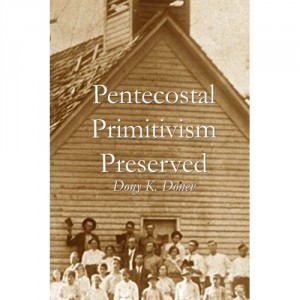
- The Forgotten Azusa Street Mission: The Place where the First Pentecostals Met
- Diamonds in the Rough-N-Ready Pentecostal Series (Complete)
- 95th anniversary of the Pentecostal movement in Bulgaria
- Toward a Pentecostal Solution to the Refugee Crises in the European Union
- Historical and Doctrinal Formation of Holiness Teachings and Praxis among Bulgarian Pentecostals
- Pacifism as a Social Stand for Holiness among Early Bulgarian Pentecostals
- The Practice of Corporate Holiness within the Communion Service of Bulgarian Pentecostals
- Sanctification and Personal Holiness among Early Bulgarian Pentecostals
- First Pentecostal Missionaries to Bulgaria (1920)
- Historical and Doctrinal Formation of Holiness Teachings and Praxis among Bulgarian Pentecostals
- The Everlasting Gospel: The Significance of Eschatology in the Development of Pentecostal Thought
- Online Pentecostal Academic Journals
- What made us Pentecostal?
- Pentecostalism and Post-Modern Social Transformation
- Obama, Marxism and Pentecostal Identity
- Why I Decided to Publish Pentecostal Primitivism?
- Historic Pentecostal Revival Tour in Bulgaria Continues
- The Land of Pentecostals
- Pentecostal Theological Seminary Address
- A Truly Pentecostal Water Baptism



